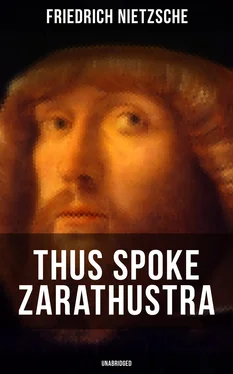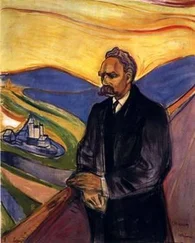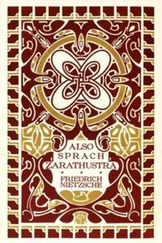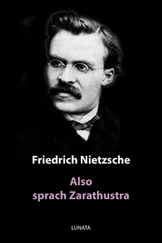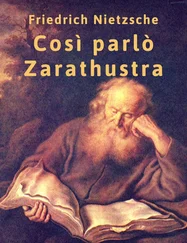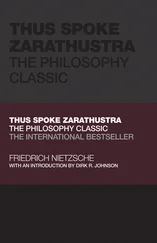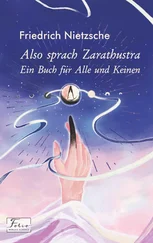If, however, thou wilt give unto them, give them no more than an alms, and let them also beg for it!”
“No,” replied Zarathustra, “I give no alms. I am not poor enough for that.”
The saint laughed at Zarathustra, and spake thus: “Then see to it that they accept thy treasures! They are distrustful of anchorites, and do not believe that we come with gifts.
The fall of our footsteps ringeth too hollow through their streets. And just as at night, when they are in bed and hear a man abroad long before sunrise, so they ask themselves concerning us: Where goeth the thief?
Go not to men, but stay in the forest! Go rather to the animals! Why not be like me—a bear amongst bears, a bird amongst birds?”
“And what doeth the saint in the forest?” asked Zarathustra.
The saint answered: “I make hymns and sing them; and in making hymns I laugh and weep and mumble: thus do I praise God.
With singing, weeping, laughing, and mumbling do I praise the God who is my God. But what dost thou bring us as a gift?”
When Zarathustra had heard these words, he bowed to the saint and said: “What should I have to give thee! Let me rather hurry hence lest I take aught away from thee!”— And thus they parted from one another, the old man and Zarathustra, laughing like schoolboys.
When Zarathustra was alone, however, he said to his heart: “Could it be possible! This old saint in the forest hath not yet heard of it, that God is dead !”
3.
When Zarathustra arrived at the nearest town which adjoineth the forest, he found many people assembled in the market-place; for it had been announced that a rope-dancer would give a performance. And Zarathustra spake thus unto the people:
I teach you the Superman . Man is something that is to be surpassed. What have ye done to surpass man?
All beings hitherto have created something beyond themselves: and ye want to be the ebb of that great tide, and would rather go back to the beast than surpass man?
What is the ape to man? A laughing-stock, a thing of shame. And just the same shall man be to the Superman: a laughing-stock, a thing of shame.
Ye have made your way from the worm to man, and much within you is still worm. Once were ye apes, and even yet man is more of an ape than any of the apes.
Even the wisest among you is only a disharmony and hybrid of plant and phantom. But do I bid you become phantoms or plants?
Lo, I teach you the Superman!
The Superman is the meaning of the earth. Let your will say: The Superman shall be the meaning of the earth!
I conjure you, my brethren, remain true to the earth , and believe not those who speak unto you of superearthly hopes! Poisoners are they, whether they know it or not.
Despisers of life are they, decaying ones and poisoned ones themselves, of whom the earth is weary: so away with them!
Once blasphemy against God was the greatest blasphemy; but God died, and therewith also those blasphemers. To blaspheme the earth is now the dreadfulest sin, and to rate the heart of the unknowable higher than the meaning of the earth!
Once the soul looked contemptuously on the body, and then that contempt was the supreme thing:— the soul wished the body meagre, ghastly, and famished. Thus it thought to escape from the body and the earth.
Oh, that soul was itself meagre, ghastly, and famished; and cruelty was the delight of that soul!
But ye, also, my brethren, tell me: What doth your body say about your soul? Is your soul not poverty and pollution and wretched self-complacency?
Verily, a polluted stream is man. One must be a sea, to receive a polluted stream without becoming impure.
Lo, I teach you the Superman: he is that sea; in him can your great contempt be submerged.
What is the greatest thing ye can experience? It is the hour of great contempt. The hour in which even your happiness becometh loathsome unto you, and so also your reason and virtue.
The hour when ye say: “What good is my happiness! It is poverty and pollution and wretched self-complacency. But my happiness should justify existence itself!”
The hour when ye say: “What good is my reason! Doth it long for knowledge as the lion for his food? It is poverty and pollution and wretched self-complacency!”
The hour when ye say: “What good is my virtue! As yet it hath not made me passionate. How weary I am of my good and my bad! It is all poverty and pollution and wretched self-complacency!”
The hour when ye say: “What good is my justice! I do not see that I am fervour and fuel. The just, however, are fervour and fuel!”
The hour when we say: “What good is my pity! Is not pity the cross on which he is nailed who loveth man? But my pity is not a crucifixion.”
Have ye ever spoken thus? Have ye ever cried thus? Ah! would that I had heard you crying thus!
It is not your sin—it is your self-satisfaction that crieth unto heaven; your very sparingness in sin crieth unto heaven!
Where is the lightning to lick you with its tongue? Where is the frenzy with which ye should be inoculated?
Lo, I teach you the Superman: he is that lightning, he is that frenzy! —
When Zarathustra had thus spoken, one of the people called out: “We have now heard enough of the rope-dancer; it is time now for us to see him!” And all the people laughed at Zarathustra. But the rope-dancer, who thought the words applied to him, began his performance.
4.
Zarathustra, however, looked at the people and wondered. Then he spake thus:
Man is a rope stretched between the animal and the Superman—a rope over an abyss.
A dangerous crossing, a dangerous wayfaring, a dangerous looking-back, a dangerous trembling and halting.
What is great in man is that he is a bridge and not a goal: what is lovable in man is that he is an over – going and a down – going .
I love those that know not how to live except as down-goers, for they are the over-goers.
I love the great despisers, because they are the great adorers, and arrows of longing for the other shore.
I love those who do not first seek a reason beyond the stars for going down and being sacrifices, but sacrifice themselves to the earth, that the earth of the Superman may hereafter arrive.
I love him who liveth in order to know, and seeketh to know in order that the Superman may hereafter live. Thus seeketh he his own down-going.
I love him who laboureth and inventeth, that he may build the house for the Superman, and prepare for him earth, animal, and plant: for thus seeketh he his own down-going.
I love him who loveth his virtue: for virtue is the will to down-going, and an arrow of longing.
I love him who reserveth no share of spirit for himself, but wanteth to be wholly the spirit of his virtue: thus walketh he as spirit over the bridge.
I love him who maketh his virtue his inclination and destiny: thus, for the sake of his virtue, he is willing to live on, or live no more.
I love him who desireth not too many virtues. One virtue is more of a virtue than two, because it is more of a knot for one’s destiny to cling to.
I love him whose soul is lavish, who wanteth no thanks and doth not give back: for he always bestoweth, and desireth not to keep for himself.
I love him who is ashamed when the dice fall in his favour, and who then asketh: “Am I a dishonest player?”— for he is willing to succumb.
I love him who scattereth golden words in advance of his deeds, and always doeth more than he promiseth: for he seeketh his own down-going.
I love him who justifieth the future ones, and redeemeth the past ones: for he is willing to succumb through the present ones.
I love him who chasteneth his God, because he loveth his God: for he must succumb through the wrath of his God.
Читать дальше
